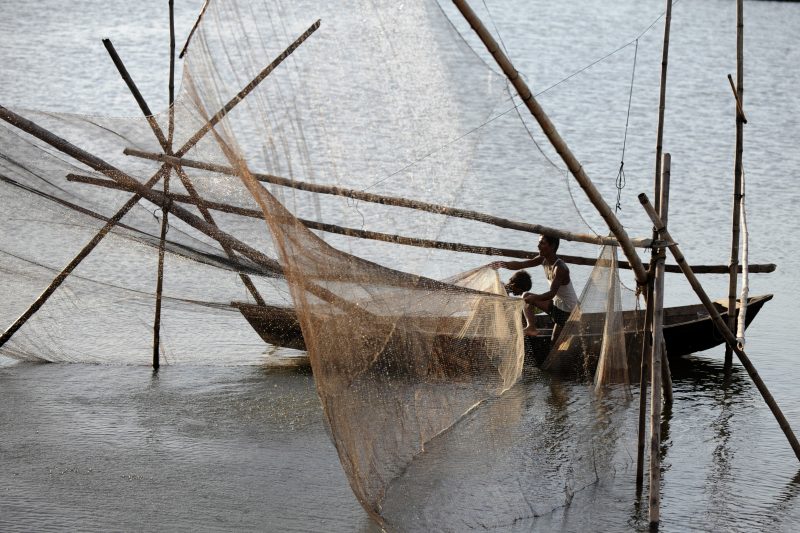Protests as Bangladesh slaps two-month ban on shallow-water fishing
Bangladesh has banned fishing in shallow waters and coastal rivers for the next two months in a bid to protect stocks (MUNIR UZ ZAMAN)
Dhaka (AFP) – Bangladesh has banned fishing in the Bay of Bengal for the next two months in an effort to replenish stocks, a minister said Tuesday, triggering protests by hundreds of fishermen.
The junior minister for fisheries, Ashraf Ali Khan, said the ban would run from May 20 to July 23, and that navy and coast guard vessels would patrol the bay to prevent boats from putting to sea.
Bangladesh frequently slaps seasonal bans on fishing in deep seas and coastal rivers, but authorities said this was the longest-ever imposed for shallow waters.
The decision triggered angry demonstrations in the coastal region, and hundreds of fishermen took to the streets to protest the ban.
Some 15 million people in southern Bangladesh are either directly or indirectly involved in the fishing industry, one of the largest in the world.
Abdul Khalek, president of a fishing trawler owners association in Cox’s Bazar, said members were in shock as the ban comes during the peak season for catching Hilsa, a type of herring.
“We were neither prepared nor received any early warning,” he told AFP. “The order came suddenly. We already couldn’t go to the sea for 15 days due to Cyclone Fani.”
Khalek said fishermen had in the past welcomed short bans on fishing which seemed “healthy” for all parties.
“But two months of unemployment would be too hard,” he said.
Chittagong fisheries department official Mominul Haque said some 25,000 registered fishermen had returned to port since the ban was declared.
“Fishermen have only one thought in mind: how they will feed their children as there will be no work for the next two months,” said boat owner Delwar Hossain.
Authorities have not announced any compensation scheme, but minister Khan said: “The fishermen will be the ultimate beneficiaries.”
Every year Bangladesh imposes a weeks-long ban on the fishing of Hilsa, the country’s most popular fish, and has created six sanctuaries in its network of coastal rivers to allow spawning.
The bans have helped boost the catch by more than 150 percent in the last 15 years to become a nearly $2 billion global market.
Disclaimer: Validity of the above story is for 7 Days from original date of publishing. Source: AFP.


